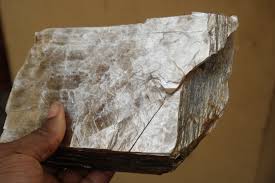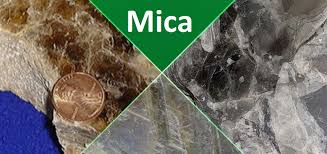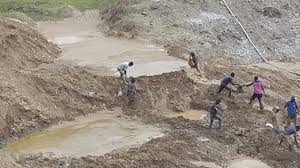![]()
If you’ve landed on this article page, you’re probably searching for a
good business idea—an idea that’s light on the pocket but heavy on
returns, promising both a fulfilling journey and potential profit.
|
How To Start A Lucrative Mica Mining Business In Nigeria
Mica, a silicate mineral known for its shimmering appearance and
excellent insulating properties, has garnered significant
attention in the global market. The mineral is primarily used in
cosmetics, electronics, and construction materials, making it a
valuable commodity. In Africa, and particularly in Nigeria, the
mica mining business is emerging as a potential economic driver.
Once mica has been extracted and processed, effective marketing
strategies are essential for reaching potential buyers both
locally and internationally. Understanding target markets is
crucial; industries such as cosmetics often seek high-quality
mica with specific characteristics like color and particle size.
Establishing relationships with manufacturers in these sectors
can facilitate direct sales channels.
The continent is endowed with vast mineral resources, and mica
is one of the lesser-explored yet promising minerals. As global
demand for mica continues to rise, driven by industries such as
beauty and technology, Nigeria stands at the forefront of this
burgeoning sector. The mica mining business in Nigeria is not
just an economic opportunity; it also presents a chance to
enhance local communities’ livelihoods.
With the right investments and strategies, the sector can create
jobs, improve infrastructure, and foster sustainable
development. However, the industry is not without its
challenges. Issues such as illegal mining, environmental
degradation, and social implications must be addressed to ensure
that the benefits of mica mining are equitably distributed.
Key Takeaways
Mica mining is a lucrative business in Nigeria and Africa, with
high demand for mica in various industries such as cosmetics,
electronics, and construction.
The mica industry in Nigeria and Africa is characterized by a
large number of small-scale artisanal miners, as well as some
large-scale mining operations.
Researching and identifying mica deposits in Nigeria and Africa
requires geological surveys, mapping, and exploration to locate
viable mica reserves.
Securing permits and licenses for mica mining in Nigeria and
Africa involves navigating the regulatory framework and
obtaining the necessary approvals from government authorities.
Setting up the infrastructure for mica mining operations in
Nigeria and Africa involves establishing mining sites,
processing facilities, and transportation logistics to extract
and transport mica products to market.
Understanding the Mica Industry in Nigeria and Africa
The mica industry in Nigeria is part of a larger African context
where several countries are rich in mineral resources. Mica is
predominantly found in Nigeria’s northern regions, where
geological formations are conducive to its presence. The mineral
is often extracted from pegmatite deposits, which are rich in
various minerals.
The global mica market has been experiencing a resurgence due to
increased demand from sectors such as cosmetics, automotive, and
electronics. In Nigeria, the potential for mica mining is
significant, given the country’s vast untapped reserves. In
Africa, countries like Madagascar and Zimbabwe have been
traditional players in the mica market.
However, Nigeria’s entry into this space could reshape the
dynamics of the industry. The Nigerian government has recognized
the importance of diversifying its economy away from oil
dependency and is actively promoting mining as a viable
alternative. This shift presents an opportunity for local
entrepreneurs and foreign investors to explore mica mining as a
lucrative business venture.
Understanding the market dynamics, including pricing trends and
consumer preferences, is crucial for stakeholders looking to
capitalize on this opportunity.
Nigerian Geological Survey Agency (NGSA) plays a pivotal role in
providing data on mineral resources across the country.
By leveraging geological studies and satellite imagery,
investors can pinpoint areas with high concentrations of mica
deposits. In addition to government resources, collaboration
with local communities can yield valuable insights into
traditional mining practices and historical sites of mica
extraction. Engaging with local miners can provide information
about the quality and quantity of mica available in specific
regions.
Furthermore, conducting feasibility studies that assess the
economic viability of mining operations is essential. These
studies should consider factors such as transportation
logistics, labor availability, and market access to ensure that
investments are sound and sustainable.
Securing Permits and Licenses for Mica Mining in Nigeria and
Africa
Navigating the regulatory landscape is a crucial aspect of
establishing a mica mining business in Nigeria and Africa at
large. The process typically involves obtaining various permits
and licenses from government authorities to ensure compliance
with local laws and regulations. In Nigeria, the Ministry of
Mines and Steel Development oversees mining activities and
issues licenses for exploration and extraction.
The licensing process can be complex and time-consuming,
requiring applicants to submit detailed proposals outlining
their intended operations. This includes environmental impact
assessments (EIAs) that evaluate potential effects on local
ecosystems and communities. Engaging legal experts familiar with
mining regulations can streamline this process and help avoid
potential pitfalls.
Additionally, fostering relationships with government officials
can facilitate smoother interactions during the permitting
process.
Establishing robust infrastructure is vital for the success of
mica mining operations. This includes not only physical
infrastructure such as roads, transportation systems, and
processing facilities but also logistical frameworks that
support efficient operations. In many rural areas where mica
deposits are located, existing infrastructure may be inadequate
or non-existent.
Therefore, investing in road construction and transportation
networks can significantly enhance access to mining sites.
Moreover, setting up processing facilities close to mining
locations can reduce transportation costs and improve product
quality. These facilities should be equipped with modern
technology to ensure efficient extraction and processing of
mica.
Additionally, training local workers in advanced mining
techniques can enhance productivity while providing employment
opportunities within communities. A well-planned infrastructure
strategy not only supports operational efficiency but also
contributes to the overall development of the region.
Proactive measures can pave the way for a thriving industry that
benefits both local communities and investors alike. By focusing
on responsible practices, effective marketing strategies, and
community engagement, stakeholders can harness the potential of
this valuable mineral resource while contributing to sustainable
development across the region.
Gets our Practical Guide on Mica Mining in Nigeria.
Our Team has local
knowledge of the terrain and provides valuable consulting
services to multinational companies looking to invest in Mica
and other commodities.
Whether you are a local or international small-scale operation
or an advanced project, we can act as both a representative and
partner to ensure success. Our team is well-versed in the latest
Mica products and technology, and we can guide you every step of
the way to make your project a success.
When you partner with us to expand your Mica projects within
Africa, you can be confident that you are working with a
reliable, knowledgeable, and experienced consulting team that
can help manage the success of the project. We are dedicated to
helping our clients achieve their goals and grow their
businesses.
|







